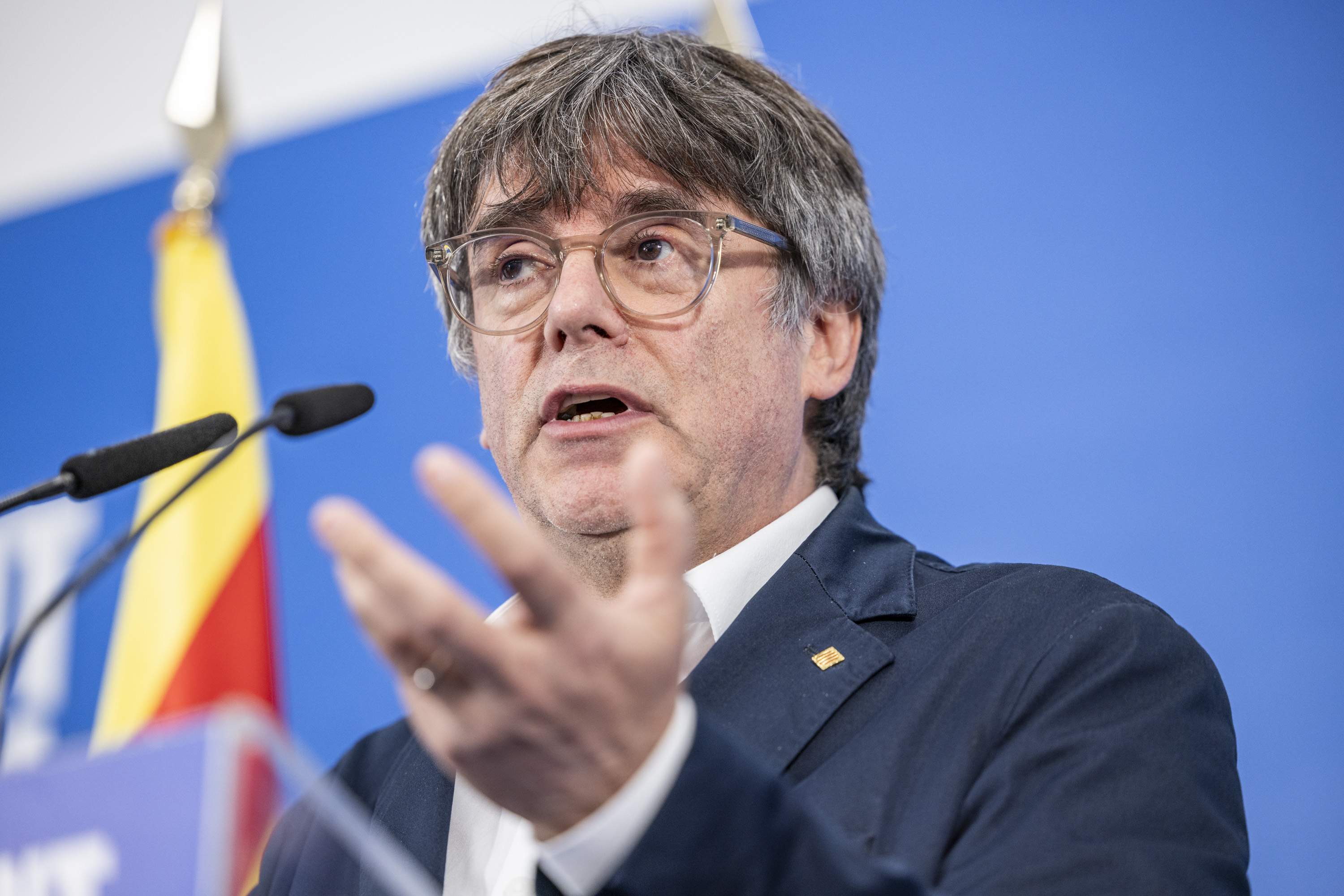Spain's Supreme Court is standing firm against the new amnesty law for Catalan independence-related cases. A few hours after the law was brought into force by the fact of its publication in the official state gazette, the high court has made a move, issuing three rulings to address the application of the law in the cases it has on the table. The most important aspect is that, for the time being, Pablo Llarena has decided to maintain the arrest warrants against Carles Puigdemont, Toni Comín, Lluís Puig and Marta Rovira, despite the fact that the amnesty law is now in force. His ruling is clear: "Communicate to the Security Bodies and Forces that the national arrest warrants remain valid and active, so they must proceed with compliance with them as long as these decisions are not judicially modified or revoked."
The Supreme Court maintains that the interim measures - that is, in this case, the arrest warrants - require an "urgent analysis" and it proceeds to ask the parties to the cases to report within five days on the "applicability or inapplicability" of the law to the actions attributed to Puigdemont, Comín, Puig and Rovira, on the "pertinence of maintaining or modifying the agreed interim measures" and on whether the actions attributed to the pro-independence leaders are "included" within the scope of the law.
In the ruling drafted by Llarena, three pages in length, one paragraph stands out: like the Supreme Court prosecutors, the investigating judge places his magnifying glass over the crime of misuse of public funds. He asks the parties to provide a "particular reference" on whether the facts relating to this crime can "be considered excluded from the scope of application of the law due to the specific provision of the legislator included in Article 2e". Specifically, this section of the law excludes "acts classified as crimes that will affect the financial interests of the European Union". In fact, the four prosecutors who conducted the case against the pro-independence leaders in 2019 maintain that the amnesty does "affect the financial interests of the EU in the general framework of the fight against corruption".
Ten days for Puigdemont and Wagensberg lawyers to pronounce on Tsunami
Second ruling. Judge Susana Polo, investigator for the Supreme Court in the Democratic Tsunami case against Carles Puigdemont and Ruben Wagensberg, who are being probed on possible terrorism charges, gives a "maximum period of ten days" to the parties to report on "the applicability or inapplicability of the law". The judge reactivated the case at the beginning of April and summoned Puigdemont and Wagensberg as persons investigated to give statements, voluntarily and by video conference, between Monday 17th and Friday 21st June. In addition, Polo issued a European investigation order (OEI) and international rogatory letter relating to criminal matters, but has not issued any arrest warrants, either European or national.
The court considers that there is an indicative basis for considering Puigdemont to be the "leader" of the Democratic Tsunami protest platform. It maintains that he could have stopped the mobilizations that were called in response to the sentencing of the pro-independence leaders trial, but that, on the contrary, he did not. The key mobilization was at Barcelona-El Prat airport on October 14th, 2019. In opposition to this, the public prosecutors consider that neither Puigdemont nor the other eleven investigated by the National Audience committed a crime of terrorism, and in the end, the actions attributed to them could match the definitions of public disorder.
Marchena gives 5 days to Junqueras, Romeva, Turull, Bassa and Ponsatí
Finally, Manuel Marchena, the presiding judge in that same 2019 Catalan leaders' trial, has asked the public prosecutors, the private prosecution conducted by Vox and the defence lawyers of Oriol Junqueras, Raül Romeva, Jordi Turull and Dolors Bassa to "formulate the arguments they consider appropriate” on the “effects of the law” and on the “criminal actions for which they were convicted”. In addition, the ruling also addresses the defence lawyer of Clara Ponsatí to pronounce on the "crime for which she was prosecuted".
As well, Marchena points out that "an action that is determinant of criminal responsibility can only be understood as amnestied when it has been declared as such by a firm resolution issued by the body competent to give it in accordance with the precepts of this law". Therefore, he rules that the bans on the holding of public office, which are the parts of the sentences of Junqueras, Romeva, Turull and Bassa which remain after their partial pardons in 2021, are maintained, as a result of the convictions for misuse of public funds and disobedience.

